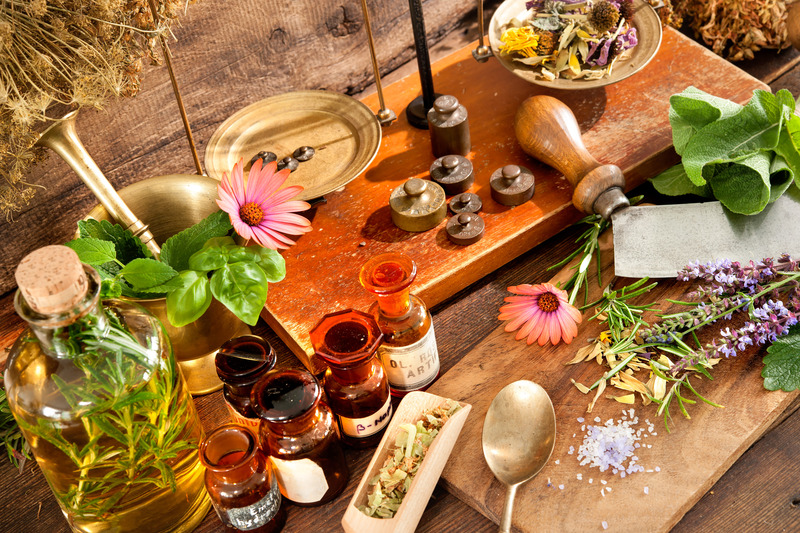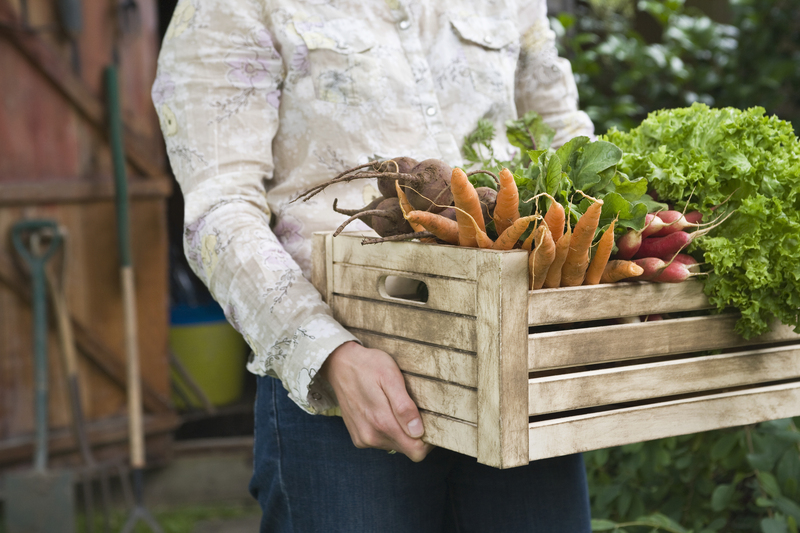Mastering the Basics: 9 Essential Gardening Tips for Beginners
Posted on 12/09/2025
Mastering the Basics: 9 Essential Gardening Tips for Beginners
Starting your own garden is a rewarding experience that brings you closer to nature while providing beauty, relaxation, and even tasty vegetables or fragrant herbs. However, diving into the world of gardening can seem overwhelming for those who are just beginning. Whether you have a large backyard or a small balcony, the key is to grasp the core gardening fundamentals.
In this comprehensive guide, we'll walk you through 9 essential gardening tips for beginners to set up your garden for lasting success. From understanding your soil to maintaining healthy plants, these gardening basics will help you grow your green thumb with confidence.
1. Choose the Right Location
Selecting the perfect spot for your garden is the first and perhaps the most important gardening tip for beginners. Most plants--especially vegetables and flowers--require plenty of sunlight to thrive.
- Sunlight: Aim for a location that receives at least 6-8 hours of direct sunlight each day. Observe your yard or balcony and note how sunlight moves throughout the day.
- Accessibility: Place your garden where it's easy to reach for watering and maintenance. The more convenient your garden is, the more likely you are to care for it regularly.
- Protection: Consider natural windbreaks or barriers that can protect delicate plants from harsh weather. Fences, shrubs, or even walls can shield your garden from strong winds.

2. Understand Your Soil Type
Healthy soil is the foundation of successful gardening. Different plants require different soil types, but knowing what you're working with helps you make informed decisions.
- Test Your Soil: Purchase an inexpensive soil test kit from a garden center or online. Check for soil texture and pH levels.
- Types of Soil: Common soil types include sandy, clay, loamy, and silt. Each drains and retains water differently.
- Amend as Needed: Add compost, organic matter, or specific fertilizers to improve soil structure and fertility.
Tip: Plants like tomatoes and peppers thrive in loamy, well-drained soil, while root vegetables like carrots prefer soil that's loose and sandy.
3. Select Easy-to-Grow Plants
One of the most practical gardening tips for beginners is to start with resilient, low-maintenance plants. This helps boost your confidence while reducing the chances of frustration.
- Vegetables: Lettuce, radishes, and bush beans are easy crops for beginners.
- Herbs: Basil, mint, chives, and parsley are simple to grow in small pots or garden beds.
- Flowers: Marigolds, zinnias, and sunflowers thrive even with basic care.
Research the specific requirements of any plant you choose--sun, spacing, and water instructions can often be found on the seed packet or plant label.
4. Master the Art of Watering
Watering might seem straightforward, but understanding how and when to water your plants is crucial for a thriving garden.
- Consistency: Develop a regular schedule for watering. Generally, gardens need an inch of water per week, but it depends on plant type and weather.
- Morning Watering: The best time to water is early morning, which allows plants to absorb water before the sun evaporates it.
- Avoid Overwatering: Excess water can lead to root rot and fungal diseases. Stick your finger into the soil up to your knuckle--if it feels dry, it's time to water.
Pro Tip: Use mulch to retain soil moisture and reduce the frequency of watering in hot climates.
5. Learn About Fertilizing
Proper feeding ensures that your plants receive the nutrients they need to grow and bloom.
- Organic Fertilizers: Compost, worm castings, and well-rotted manure are excellent natural options.
- Chemical Fertilizers: These offer precise nutrient combinations and are effective when used carefully according to instructions.
- Timing: Apply fertilizers during the active growing season. Avoid over-fertilizing, as this can harm roots and pollute runoff water.
Look for slow-release fertilizers for garden beginners, which feed plants gradually over time, reducing the chance of mistakes.
6. Master Basic Pruning Techniques
Pruning keeps your plants healthy, encourages growth, and shapes their appearance. For beginners, simple tools and techniques will suffice.
- Remove Dead Growth: Use clean, sharp shears to cut away dead or yellowing leaves and stems. This prevents disease and encourages new growth.
- Pinch for Bushier Growth: For herbs like basil, pinch the growing tips to foster a bushier plant.
- Timing: Prune flowering shrubs after blooms fade, and trim fruit or vegetable plants to prevent overcrowding.
Note: Disinfect tools between uses to avoid spreading plant diseases.
7. Mulching Matters
Mulch acts as a protective barrier for your garden and is essential for healthy soil. This often-overlooked gardening tip for beginners can make a significant difference.
- Moisture Retention: Mulch slows evaporation, keeping soil consistently moist and reducing watering needs.
- Weed Suppression: A two to three-inch layer of mulch--such as straw, shredded leaves, or wood chips--blocks sunlight to discourage weed growth.
- Temperature Control: In hot climates, mulch keeps the soil cooler; in winter, it insulates roots against freezing.
Try organic mulches as they decompose, enriching your soil over time.
8. Control Pests and Diseases Naturally
Protecting your plants from common enemies like pests and diseases is vital for successful gardening. Beginner gardeners benefit from natural remedies and prevention techniques that minimize chemical exposure.
- Regular Inspection: Examine plants frequently for signs of insect damage, mold, or discolored leaves.
- Companion Planting: Grow pest-repelling plants such as marigolds or garlic next to susceptible crops. This enhances plant health and deters insects naturally.
- DIY Solutions: Use homemade sprays of diluted neem oil or soap to combat aphids and mites. Remove infected leaves promptly to slow disease spread.
Remember: Healthy plants are naturally more resistant to pests and diseases. Good soil, proper sunlight, and correct watering all help!
9. Practice Patience and Consistency
Perhaps the most important piece of advice for any gardening newbie is to cultivate patience. Gardens don't transform overnight. Plants need time to establish roots, develop, and bloom.
- Document Your Journey: Keep a gardening journal--note what you plant, where, and when. Record successes and setbacks.
- Celebrate Small Wins: Take pride in each sprout, bloom, or harvest. Every step forward brings valuable experience.
- Stay Consistent: Regular care, observation, and incremental improvements lead to long-term gardening success for beginners.
Tip: Join local gardening groups or online forums to share progress, seek help, and swap tips with fellow enthusiasts.
Common Mistakes Beginners Should Avoid
Knowing what not to do is just as critical as following gardening advice for beginners. Here are a few pitfalls to avoid:
- Planting Too Much: Start small. Overcrowding leads to competition for nutrients, stunted growth, and extra work.
- Ignoring Plant Labels: Spacing and sun requirements are vital--read & follow them carefully.
- Forgetting to Weed: Weeds compete for sunlight and nutrients. Regularly check and remove unwanted plants.
- Neglecting Tools: Always clean and store your garden tools; rusty or dirty tools can harbor diseases.
Essential Gardening Tools For Beginners
Set yourself up for gardening success by investing in a few basic tools. You don't need expensive gadgets--just reliable essentials:
- Trowel: For digging holes and transplanting seedlings.
- Pruners: Ideal for trimming plants and harvesting herbs or veggies.
- Garden Gloves: Protect your hands from thorns, splinters, and dirt.
- Watering Can or Hose: Simple watering tools work well for any garden size.
- Hand Fork or Weeder: Removing weeds efficiently with minimal disturbance.
- Wheelbarrow (optional): Useful for larger gardens to move soil, compost, or supplies.

Planning for the Seasons
Understanding how seasons affect planting, growth, and harvest times is part of the gardening basics for beginners:
- Spring: Ideal for planting cool-season crops, perennials, and bulbs.
- Summer: Focus on watering, pest control, and harvesting fast-growing crops.
- Fall: Plant hardy vegetables, add mulch, and prepare beds for winter.
- Winter: Review and plan next year's garden, start seeds indoors, and tend to houseplants.
Conclusion: Grow Your Skills, Reap the Rewards
Gardening is an ongoing journey filled with learning and rewards. By following these essential gardening tips for beginners, you'll build a strong foundation that supports healthy plants and joyful harvests year after year. Remember, every seasoned gardener started as a beginner--so don't be afraid to get your hands dirty, experiment, and enjoy the wonders of nature right at home.
Ready to dig in? Grab your gloves, pick a sunny spot, and get started with your first seeds or cuttings. Mastering the gardening basics is the first step toward cultivating a lush, productive, and beautiful garden--no matter your experience level!
Happy gardening!
Latest Posts
Tips for Starting Your Own Herb Garden
Discover Strategies to Shield Your Garden from Severe Weather Threats
Transforming Organic Waste into Fertile Soil
Mastering the Basics: 9 Essential Gardening Tips for Beginners

